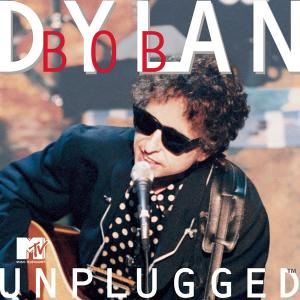
Unplugged (1995)

1. Tombstone Blues
2. Shooting Star
3. All Along the Watchtower
4. The Times They Are A-Changin'
5. John Brown
6. Rainy Day Women #12 & 35
7. Desolation Row
8. Dignity
9. Knockin' on Heaven's Door
10.Like a Rolling Stone
11.With God on Our Side
By the mid-1990s, the MTV Unplugged series had evolved into a curious kind of proving ground—an arena where grunge, alt-rock, and legacy acts alike stepped away from distortion pedals and embraced acoustic authenticity, often to surprising effect. But when Bob Dylan was tapped to participate, it raised a peculiar question: how does one strip down what has always been stripped down?
For an artist whose career was forged with little more than a guitar, harmonica, and voice, the concept of going “unplugged” seemed redundant at best, contrived at worst. Dylan, after all, was never one to follow trends, and the sight of him framed by the trappings of early-'90s youth culture—MTV logos, polite applause from the seated, denim-clad audience—felt like a moment of mild cultural misalignment. Had this been a sincere artistic endeavor or merely a nod to industry expectation?
The performance itself is competent—sometimes more than that—but rarely vital. Dylan draws heavily from his better-known material, and while the renditions are solid, they seldom surprise. There’s a certain predictability to The Times They Are A-Changin’ or Knockin’ on Heaven’s Door in this setting, and the stripped-back format, ironically, robs them of some of their original urgency. The crowd, perhaps more intrigued than invested, offers applause on cue, but the connection between artist and audience feels ceremonial rather than electric.
There are, however, moments that transcend. John Brown, previously unreleased in official form, emerges as the quiet triumph of the set—angry, articulate, and sharply observed, a reminder of Dylan’s knack for moral clarity wrapped in personal narrative. Its presence alone justifies the album’s existence for many. Similarly, the inclusion of more recent compositions like Dignity offers a breath of life into the proceedings, suggesting that Dylan’s ongoing work deserved more attention than it was receiving from casual listeners still clinging to the iconography of the ‘60s.
Structurally, the album suffers in its latter half. Songs stretch on, not through improvisation or revelation, but through languid pacing. By the closing tracks, a sense of inertia creeps in. Whether this is Dylan settling into a groove or simply phoning in the back half is open to interpretation, but the result is an experience that feels more dutiful than inspired.
As a live document, MTV Unplugged is neither essential nor embarrassing. It is a competent performance from a reluctant participant, designed less to capture a moment of artistic awakening and more to slot neatly into a marketable format. One imagines the accountants were pleased. As for the audience—well, they got a Dylan concert. Just not a particularly memorable one.
Go back to the main page
Go To Next Review